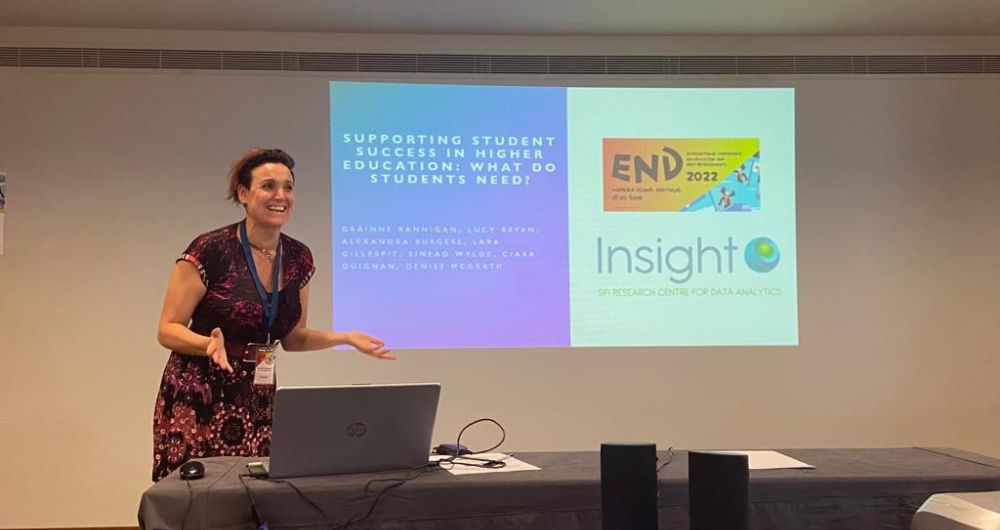
We have heard about the FLOURISH project in DCU, but did you know that Insight at UCD also has a number of projects, including FLOURISH, that seek to enhance student wellbeing? These projects are engaged research in action. Team leader Dr Denise McGrath (pictured) writes:
“It is relatively easy to design new technology, but it is very challenging to design technology that addresses real needs of diverse users. Wellbeing can be a complex and deeply personal experience. When designing wellbeing supports, it is essential to incorporate the diverse voices of those who will use the supports, to ensure that their needs are met. Two Insight projects focusing on student wellbeing in Higher Education: FLOURISH (Fitness for Life in Our Universities: Realising Informatics for Students to Thrive) and TESLAA, (Technology supported Student Learning and development through Appreciative Advising), employed this “engaged research” approach. A UCD team led by Dr Denise McGrath, along with Dr Ciara Duignan, Dr David Coyle, Peter Megyesi and Grainne Bannigan, ensured that the student voice was captured and amplified in 1) designing training and education in personal wellbeing and 2) an app called “JoDo – get the Job Done” – both seeking to support students to thrive in their campus life.
“Across both projects, a suite of engaged research approaches were used with students, including multiple online and in-person co-design workshops. An important feature of this research was the training of undergraduate peer researchers who facilitated focus groups that captured the authentic needs and perspectives of fellow students on issues that they all could relate to. Our programme of engaged research encompassed over 60 undergraduate students from diverse academic programmes, age groups and nationalities over a 2-year period.
“We found that students already engage with a multitude of apps to support various aspects of their personal development and wellbeing, on an inconsistent basis. Students were highly creative in designing novel, hypothetical digital solutions that addressed real needs. The digital tools they conceived provided more holistic yet personalised wellbeing support than those currently available, with less potential for disruption/distraction, higher levels of data trustworthiness and privacy and more meaningful social connections that can translate to real life interactions. The digital tool we subsequently developed- “JoDo”- was deployed in a cohort of 30 students and was found to be both usable and useful in supporting students over a 5-week stressful exam period. Our work highlighted the value of including the student voice in the design of effective wellbeing supports in higher education to help students life-manage and be well. This engaged research approach is currently being called for to progress the field of student wellbeing in Higher Education.”